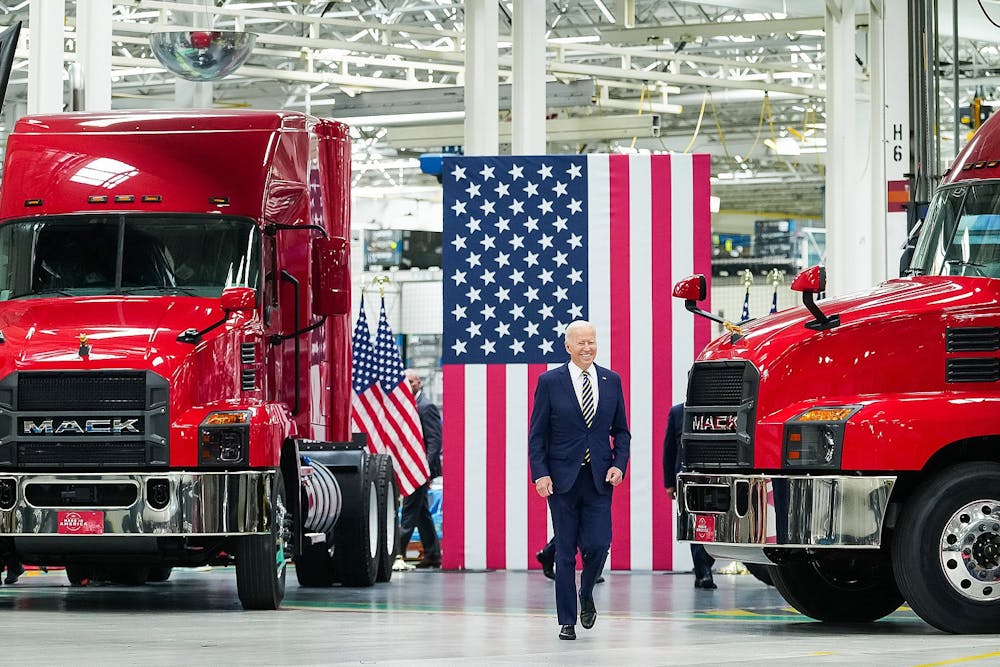By Shaim Akhtar
Staff Writer
President Joe Biden recently announced potential various tariffs on steel and aluminum exported by global partners, such as China, aimed at protecting and encouraging domestic production of these resources.
The new tariff aims to triple the existing tariff rate of 7.5% on steel and aluminum products from China, seeking to curb unfair competition for American workers and improve quality control. Furthermore, the measures have the potential to significantly reduce carbon emissions in the steel and aluminum industries, which are caused by these imports.
The legislation intends to expand renewable energy usage in American steel plants by investing up to $1.5 billion in six clean iron and steel projects, as part of a broader effort to lower carbon emissions from highly energy-intensive industries.
The tariffs would also encourage the Department of Commerce to take action against countries and importers that violate the tariffs by importing cheap products to American markets. The Department of Commerce will ensure that imports priced below fair and competitive wages are thoroughly scrutinized by expanding investigations.
The Biden Administration also plans to invest $75 million towards a high-silicon grain-oriented electrical steel facility in Pennsylvania in order to sustain over 1,000 jobs for American workers. Moreover, the administration will also invest $500 million to enhance the Cleveland-Cliffs plant in Ohio to generate clean steel for the automotive industry's supply chain.
Upon announcing the tariffs to steel workers on April 17, Biden stated, “These are strategic and targeted actions that are going to protect American workers and ensure fair competition.”
The potential tariffs on steel and aluminum has prompted numerous political and economic leaders to voice their reaction to the future legislation.
“The U.S. has ignored the international economic and trade order and rules, politicized economic and trade issues, abused the so-called Section 301 tariff review procedure, and openly demanded arbitrary adjustment of tariffs on Chinese products. The U.S. pressure on other countries to restrict Chinese products will undermine the security and stability of global industrial and supply chains,” commented a spokesperson from China’s Commerce Ministry.
Praising the potential tariffs on imported steels, President of the American Iron and Steel Institute Kevin Dempsey highlighted the legislation’s potential to benefit American steel producers.
“AISI is very concerned about the recent significant increase in Chinese steel exports to world markets and welcomes President Biden’s actions to strengthen U.S. tariffs on steel from China and to take other actions to address the threats from China’s unfair trade practices,” Dempsey stated. “As the largest contributor to the global steel overcapacity problem, China continues to engage in widespread unfair trade practices that harm American steel producers.”
While discussions on potential tariffs on steel and aluminum are ongoing, the Biden administration is formulating various policy implementation and enforcement to ensure an effective outcome.







